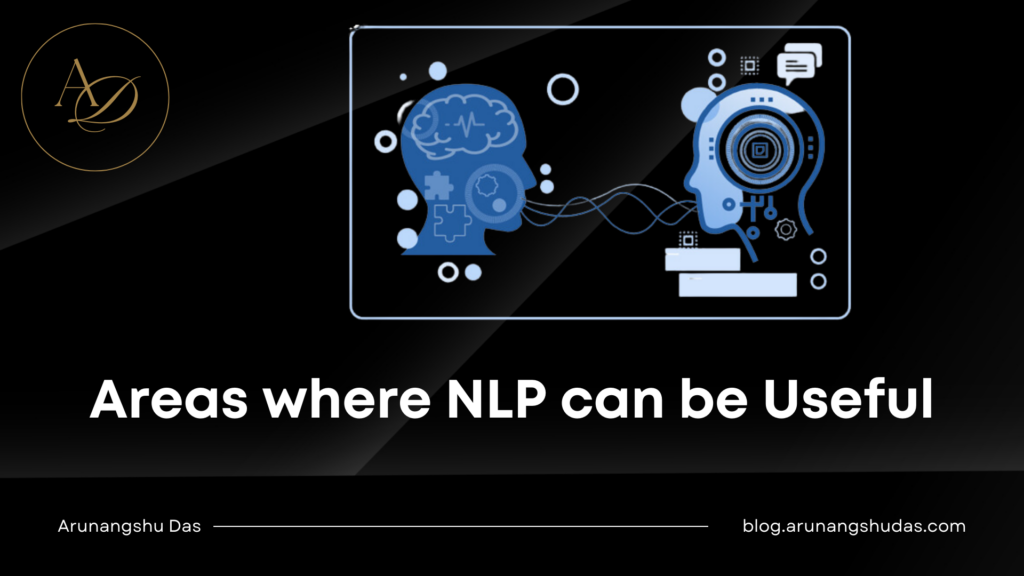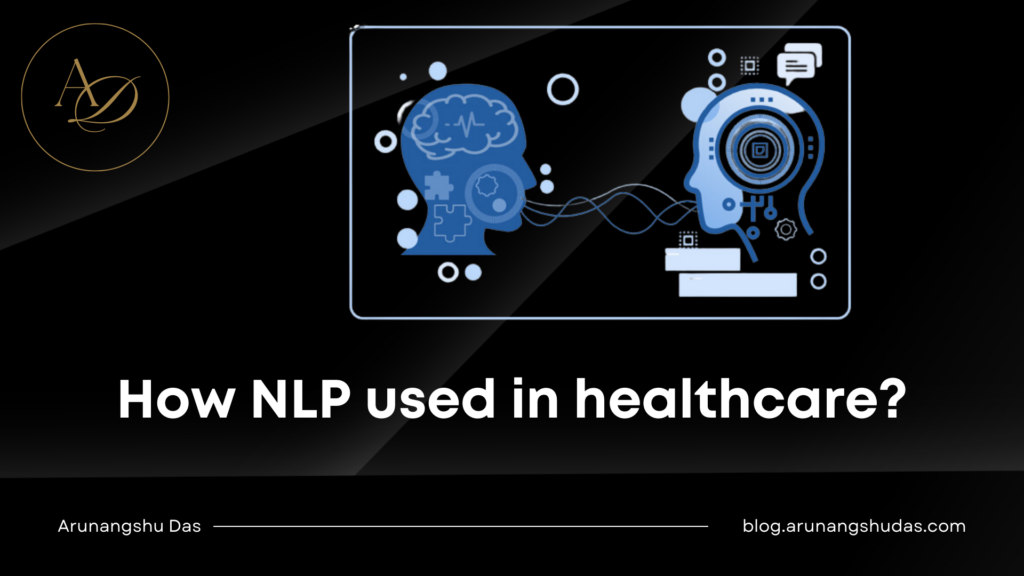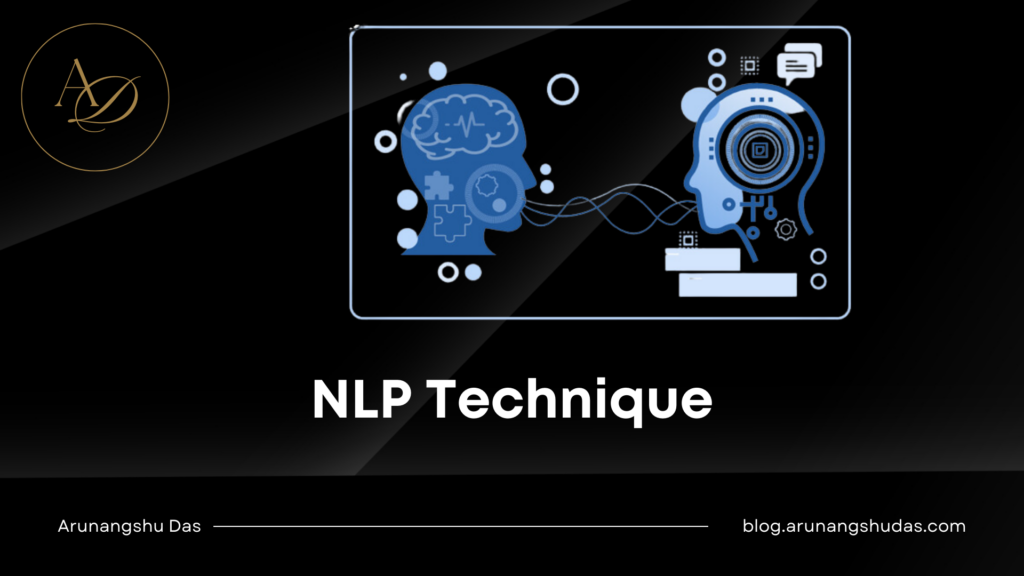NLP:
Natural Language Processing (NLP) has emerged as a transformative technology, revolutionizing the way we interact with machines and data. By bridging the gap between human language and computer understanding, NLP has found applications across a vast array of industries, driving efficiency, innovation, and insight.
- Healthcare:
NLP is revolutionizing healthcare by streamlining processes, extracting insights from medical records, and improving patient outcomes.
- Electronic Health Records (EHR) Analysis: NLP algorithms can extract valuable information from unstructured clinical notes, facilitating better diagnosis, treatment planning, and research.
- Clinical Decision Support: NLP-powered systems can analyze medical literature, patient records, and real-time data to provide clinicians with relevant information and treatment recommendations.
- Sentiment Analysis in Patient Feedback: NLP techniques can analyze patient feedback from surveys, social media, and review platforms to gauge patient satisfaction, identify areas for improvement, and enhance the overall healthcare experience.
Customer Service and Support:
NLP is reshaping customer service and support operations by enabling intelligent virtual assistants, sentiment analysis, and personalized interactions.
- Chatbots and Virtual Assistants: NLP-powered chatbots can handle customer inquiries, provide personalized recommendations, and assist with troubleshooting, reducing the burden on human agents and improving response times.
- Sentiment Analysis: NLP algorithms can analyze customer interactions across various channels to gauge sentiment, identify issues, and prioritize responses, leading to enhanced customer satisfaction and loyalty.
- Voice Recognition: NLP enables accurate speech-to-text conversion, allowing organizations to transcribe customer calls, analyze conversations, and extract valuable insights for process improvement and training purposes.
- Finance and Banking:
NLP is transforming the finance industry by automating tasks, detecting fraud, and extracting insights from vast amounts of textual data.
- Financial Document Analysis: NLP algorithms can parse and analyze financial documents such as earnings reports, regulatory filings, and news articles to extract relevant information, monitor market trends, and make data-driven investment decisions.
- Fraud Detection: NLP techniques can analyze transactional data, customer communications, and other textual sources to identify suspicious patterns, detect fraudulent activities, and mitigate risks in real time.
- Customer Support and Advisory: NLP-powered virtual assistants can provide personalized financial advice, answer customer inquiries, and assist with account management, enhancing the overall customer experience and engagement.
- E-commerce and Retail:
NLP is revolutionizing e-commerce and retail by improving search relevance, personalizing recommendations, and enhancing the shopping experience.
- Search Relevance and Product Discovery: NLP algorithms can analyze product descriptions, user reviews, and search queries to improve search relevance, optimize product listings, and enhance product discovery for online shoppers.
- Personalized Recommendations: NLP-powered recommendation systems can analyze user behavior, preferences, and purchase history to deliver personalized product recommendations, increase cross-selling opportunities, and boost customer satisfaction.
- Sentiment Analysis and Review Summarization: NLP techniques can analyze product reviews, social media mentions, and customer feedback to gauge sentiment, identify emerging trends, and generate concise summaries for product evaluation and decision-making.
- Education and E-learning:
NLP is reshaping education and e-learning by enabling personalized learning experiences, automated grading, and content analysis.
- Personalized Learning Paths: NLP algorithms can analyze student performance data, learning preferences, and curriculum requirements to tailor personalized learning paths, recommend relevant resources, and adapt instructional content to individual needs.
- Automated Grading and Feedback: NLP-powered systems can automate the grading of assignments, quizzes, and exams, providing instant feedback to students and freeing up educators’ time for more personalized interactions and instructional design.
- Content Analysis and Curriculum Design: NLP techniques can analyze educational materials, textbooks, and scholarly articles to identify key concepts, assess curriculum coverage, and inform instructional design decisions for optimized learning outcomes.
- Legal and Compliance:
NLP is transforming the legal and compliance landscape by automating document review, extracting insights from legal texts, and facilitating regulatory compliance.
- Document Review and Contract Analysis: NLP algorithms can analyze legal documents, contracts, and case law to extract relevant clauses, identify risks, and streamline the document review process for legal professionals.
- Regulatory Compliance Monitoring: NLP techniques can parse regulatory documents, compliance manuals, and internal policies to monitor regulatory changes, assess compliance risks, and facilitate proactive measures to ensure adherence to legal requirements.
- E-discovery and Litigation Support: NLP-powered systems can analyze large volumes of electronic data, including emails, documents, and communications, to identify relevant evidence, streamline e-discovery processes, and support litigation preparation and strategy.
Natural Language Processing (NLP) is a versatile technology with transformative potential across diverse industries, from healthcare and finance to e-commerce and education. By enabling machines to understand, interpret, and generate human language, NLP is driving innovation, efficiency, and insight, reshaping industries and enhancing human-machine interaction. As NLP continues to advance, its applications will expand, unlocking new opportunities for automation, personalization, and intelligence across the digital landscape. Embracing NLP is not merely an option but a necessity for organizations seeking to stay competitive and meet the evolving demands of the modern world.






